Artificial Intelligence | Physical Workshop | English | Asia-Pacific
Description:
"Upgrading AI Systems – Teaching Tectonism to AI" is an exploration into the forefront of architectural innovation, focusing on the convergence of AI and tectonism. Tectonism, as a leading subsidiary style of parametricism, poses a unique challenge for current text-to-image AI tools due to their limited comprehension of structural dependencies in architectural representations.
This course investigates the potential of merging structural topology generation tools with Generative Artificial Intelligence across various architectural typologies. Through fine-tuning and training of AI models, we aim to enhance their understanding of structural dependencies, ultimately achieving visual coherence in architectural forms.
Attendees can anticipate a rigorous examination of AI's role in architectural design, from exoskeleton towers to bridges, By controlling AI with tectonic awareness, we aim to generate architectural forms that are not only structurally optimized but also visually compelling.
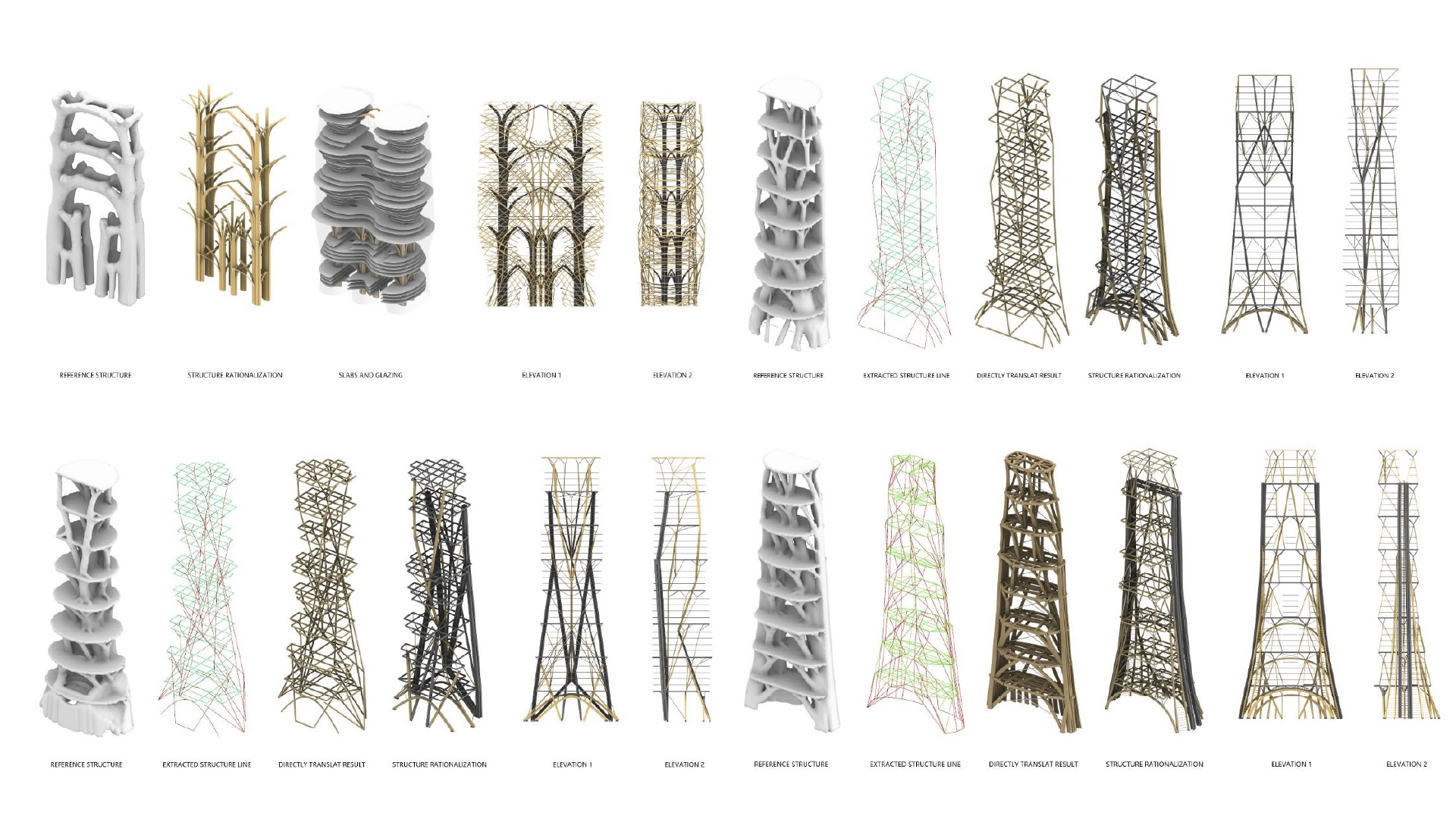
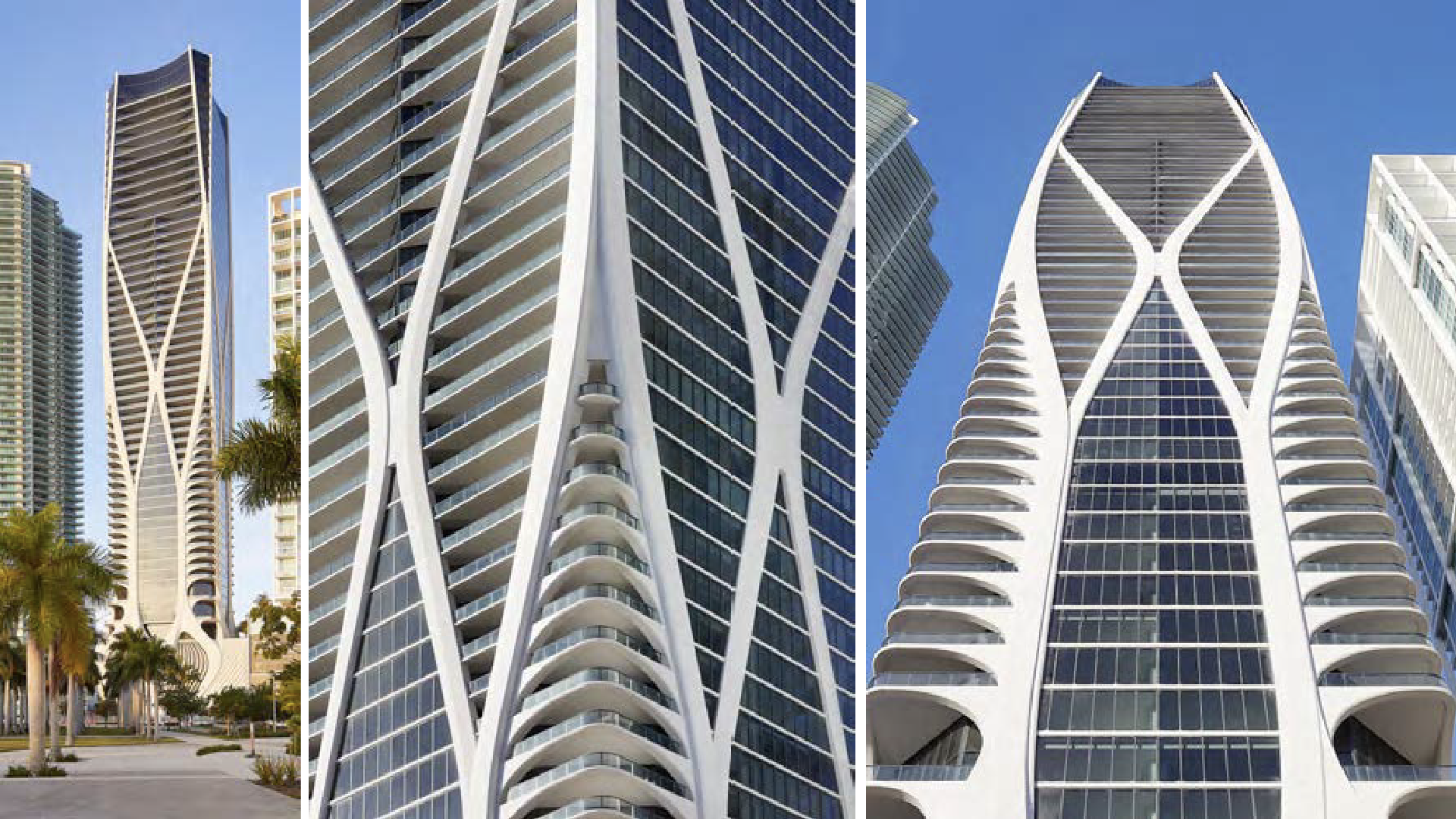
Key Words:
Topology optimisation,structural logic,stable diffusion,low-rank adaptation
Required Skills:
Intermediate Rhino & Grasshopper Modelling, Visual Scripting, Programming Language (Python, C# or C++) (optional)
Required Software:
McNeel Rhinoceros 7.0 with Grasshopper, Autodesk Maya, Stable Diffusion, other software will be provided at the workshop
Required Hardware:
Computer with Windows OS with above software installed
Maximum number of participating students:
12
This course investigates the potential of merging structural topology generation tools with Generative Artificial Intelligence across various architectural typologies. Through fine-tuning and training of AI models, we aim to enhance their understanding of structural dependencies, ultimately achieving visual coherence in architectural forms.
Attendees can anticipate a rigorous examination of AI's role in architectural design, from exoskeleton towers to bridges, By controlling AI with tectonic awareness, we aim to generate architectural forms that are not only structurally optimized but also visually compelling.


Schedule:
Jun 29 - Jul 7
-
Day 1 / Jun 29
-
Day 2 / Jun 30
-
Day 3 / Jul 1
-
Day 4 / Jul 2
-
Day 5 / Jul 3
-
Day 6 / Jul 4
-
Day 7 / Jul 5
-
Day 8 / Jul 6
-
Day 9 / Jul 7
Instructors:
-
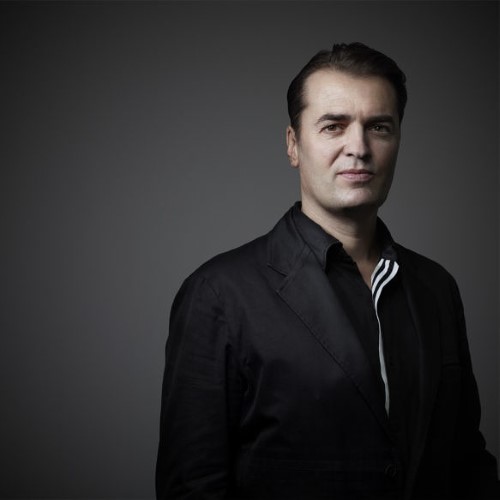 Patrik Schumacher Zaha Hadid Architects,PrincipalPatrik Schumacher studied philosophy, mathematics and architecture in Bonn, Stuttgart and London. He received his Diploma in architecture in 1990. He has been a ZHA partner since 2003 and a co-author on all projects. In 2010 Patrik Schumacher won the Royal Institute of British Architects’ Stirling Prize for excellence in architecture together with Zaha Hadid. He is an academician of the Berlin Academy of Arts since 2014. Patrik Schumacher is a member of the Royal Institute of British Architects as well as an Executive Member of the Architectural Society of China. In 1996, together with Brett Steele, he founded the Design Research Laboratory at the Architectural Association in London where he continues to teach. From 2000 to 2015 he co-taught a regular Masterclass with Zaha Hadid at the University of Applied Arts in Vienna where he continues to lead a PhD research group. He has been a guest professor at Harvard’s GSD in 2013 and 2018. Since 2019 he acts as PhD supervisor at Tongji University’s International PhD programme in Shanghai. In 1999 Patrik Schumacher completed his PHD at the Institute for Cultural Science, Klagenfurt University. He also holds an honorary doctorate as Doctor of Social Science honoris causa from La Universidad Franscisco Marroquin. Patrik Schumacher is lecturing worldwide and over the last 20 years he has contributed over 120 articles to architectural journals and anthologies. In 2003 he published the book Digital Hadid – Landscapes in Motion. In 2007 he coined the phrase Parametricism and has since published a series of manifestos promoting Parametricism as the new epochal style for the 21st century. In 2010/2012 he published his two-volume theoretical opus magnum “The Autopoiesis of Architecture”. In 2015 he guest-edited the magazine AD – Parametricism 2.0 – setting architecture’s agenda for the 21st Century with a new emphasis on the societal relevance of parametricism. Patrik Schumacher is widely recognized as one of the most prominent thought leaders within the fields of architecture, urbanism and design. His research interest focusses on designing and simulating real and virtual environments (and their fusion) with the goal to increase their power to engender and facilitate productive communicative interactions. The respective research agendas are ‘Agent-based Parametric Semiology’ and ‘Cyber-Urban Integration’. Accordingly he is lecturing on the design opportunities and challenges posed by the advent of cyber-space and the collective project of the metaverse. As Principal of ZHA, Patrik is the designer of the studio’s seminal projects worldwide including the new Beijing Daxing international airport, Leeza SOHO tower in Beijing and BEEAH Headquarters in the UAE. Working with Zaha Hadid, Patrik co-authored the designs of all ZHA’s renowned projects including MAXXI Museum Rome, Dongdaemun Design Plaza Seoul, the London 2012 Olympic Aquatics Centre, and the One Thousand Museum residential tower in Miami.
Patrik Schumacher Zaha Hadid Architects,PrincipalPatrik Schumacher studied philosophy, mathematics and architecture in Bonn, Stuttgart and London. He received his Diploma in architecture in 1990. He has been a ZHA partner since 2003 and a co-author on all projects. In 2010 Patrik Schumacher won the Royal Institute of British Architects’ Stirling Prize for excellence in architecture together with Zaha Hadid. He is an academician of the Berlin Academy of Arts since 2014. Patrik Schumacher is a member of the Royal Institute of British Architects as well as an Executive Member of the Architectural Society of China. In 1996, together with Brett Steele, he founded the Design Research Laboratory at the Architectural Association in London where he continues to teach. From 2000 to 2015 he co-taught a regular Masterclass with Zaha Hadid at the University of Applied Arts in Vienna where he continues to lead a PhD research group. He has been a guest professor at Harvard’s GSD in 2013 and 2018. Since 2019 he acts as PhD supervisor at Tongji University’s International PhD programme in Shanghai. In 1999 Patrik Schumacher completed his PHD at the Institute for Cultural Science, Klagenfurt University. He also holds an honorary doctorate as Doctor of Social Science honoris causa from La Universidad Franscisco Marroquin. Patrik Schumacher is lecturing worldwide and over the last 20 years he has contributed over 120 articles to architectural journals and anthologies. In 2003 he published the book Digital Hadid – Landscapes in Motion. In 2007 he coined the phrase Parametricism and has since published a series of manifestos promoting Parametricism as the new epochal style for the 21st century. In 2010/2012 he published his two-volume theoretical opus magnum “The Autopoiesis of Architecture”. In 2015 he guest-edited the magazine AD – Parametricism 2.0 – setting architecture’s agenda for the 21st Century with a new emphasis on the societal relevance of parametricism. Patrik Schumacher is widely recognized as one of the most prominent thought leaders within the fields of architecture, urbanism and design. His research interest focusses on designing and simulating real and virtual environments (and their fusion) with the goal to increase their power to engender and facilitate productive communicative interactions. The respective research agendas are ‘Agent-based Parametric Semiology’ and ‘Cyber-Urban Integration’. Accordingly he is lecturing on the design opportunities and challenges posed by the advent of cyber-space and the collective project of the metaverse. As Principal of ZHA, Patrik is the designer of the studio’s seminal projects worldwide including the new Beijing Daxing international airport, Leeza SOHO tower in Beijing and BEEAH Headquarters in the UAE. Working with Zaha Hadid, Patrik co-authored the designs of all ZHA’s renowned projects including MAXXI Museum Rome, Dongdaemun Design Plaza Seoul, the London 2012 Olympic Aquatics Centre, and the One Thousand Museum residential tower in Miami. -
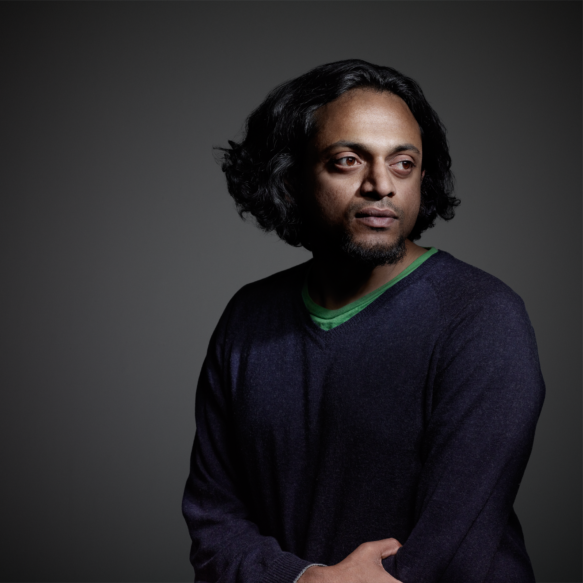 Shajay Bhooshan Zaha Hadid Architects,LondonShajay has specialised in the conception and production of architecture: from theoretical discourses to manufacturing technologies. As an expert in computation, Shajay also has specialised knowledge in programming, mathematics - especially geometry and optimisation methods, and computer-controlled industrial machines including industrial robotics. Shajay is co-founder of CODE, ZHA's computational design research group. CODE has made key contributions to computational platforms, talent development and architectural design at ZHA, especially related to architectural application and articulation of shell structures.
Shajay Bhooshan Zaha Hadid Architects,LondonShajay has specialised in the conception and production of architecture: from theoretical discourses to manufacturing technologies. As an expert in computation, Shajay also has specialised knowledge in programming, mathematics - especially geometry and optimisation methods, and computer-controlled industrial machines including industrial robotics. Shajay is co-founder of CODE, ZHA's computational design research group. CODE has made key contributions to computational platforms, talent development and architectural design at ZHA, especially related to architectural application and articulation of shell structures. -
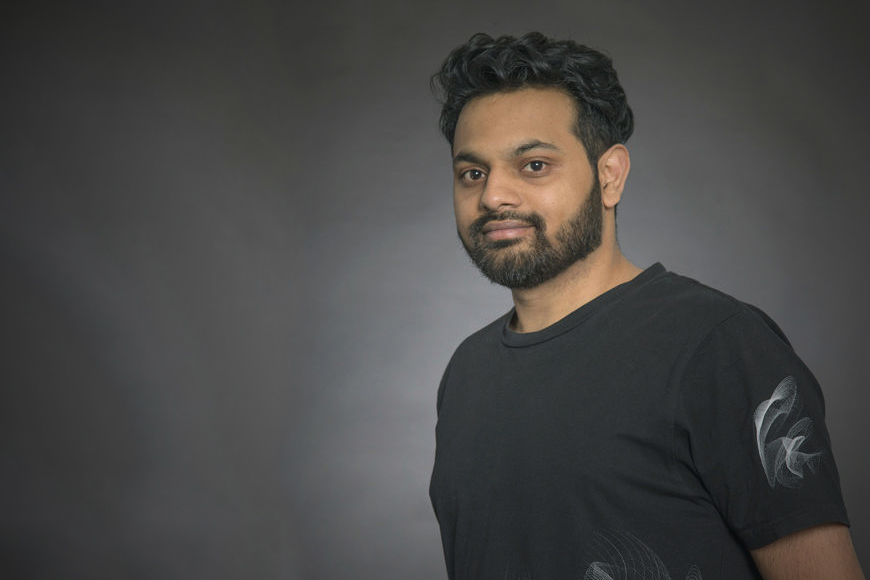 vishu bhooshan Zaha Hadid Architects,Associate , Computation & Design Group (ZHA CODE)Vishu is an Associate at Zaha Hadid Architects, Computation and Design Group (ZHA CODE) in London. He leads the design research with computational geometries and the development of a software agnostic computational framework to explore novel tectonics. Since joining ZHA in 2013, he has been involved in several architectural design competitions and commissions ranging from research prototypes, products, galleries, stadiums, bridges, metro stations, residential buildings, masterplans as well as designing for the metaverse & gaming industry. Vishu currently is a Lecturer at Architectural Computation and previously a design tutor at Architectural Design, Bartlett post-graduate programs (BPro) at University College of London (UCL). He has taught and presented at several international workshops and professional CAD conferences. Vishu completed his bachelor degree from Pune University, India in 2010 and his Master’s degree at the Architectural Association Design Research Lab, London, UK in 2013.
vishu bhooshan Zaha Hadid Architects,Associate , Computation & Design Group (ZHA CODE)Vishu is an Associate at Zaha Hadid Architects, Computation and Design Group (ZHA CODE) in London. He leads the design research with computational geometries and the development of a software agnostic computational framework to explore novel tectonics. Since joining ZHA in 2013, he has been involved in several architectural design competitions and commissions ranging from research prototypes, products, galleries, stadiums, bridges, metro stations, residential buildings, masterplans as well as designing for the metaverse & gaming industry. Vishu currently is a Lecturer at Architectural Computation and previously a design tutor at Architectural Design, Bartlett post-graduate programs (BPro) at University College of London (UCL). He has taught and presented at several international workshops and professional CAD conferences. Vishu completed his bachelor degree from Pune University, India in 2010 and his Master’s degree at the Architectural Association Design Research Lab, London, UK in 2013. -
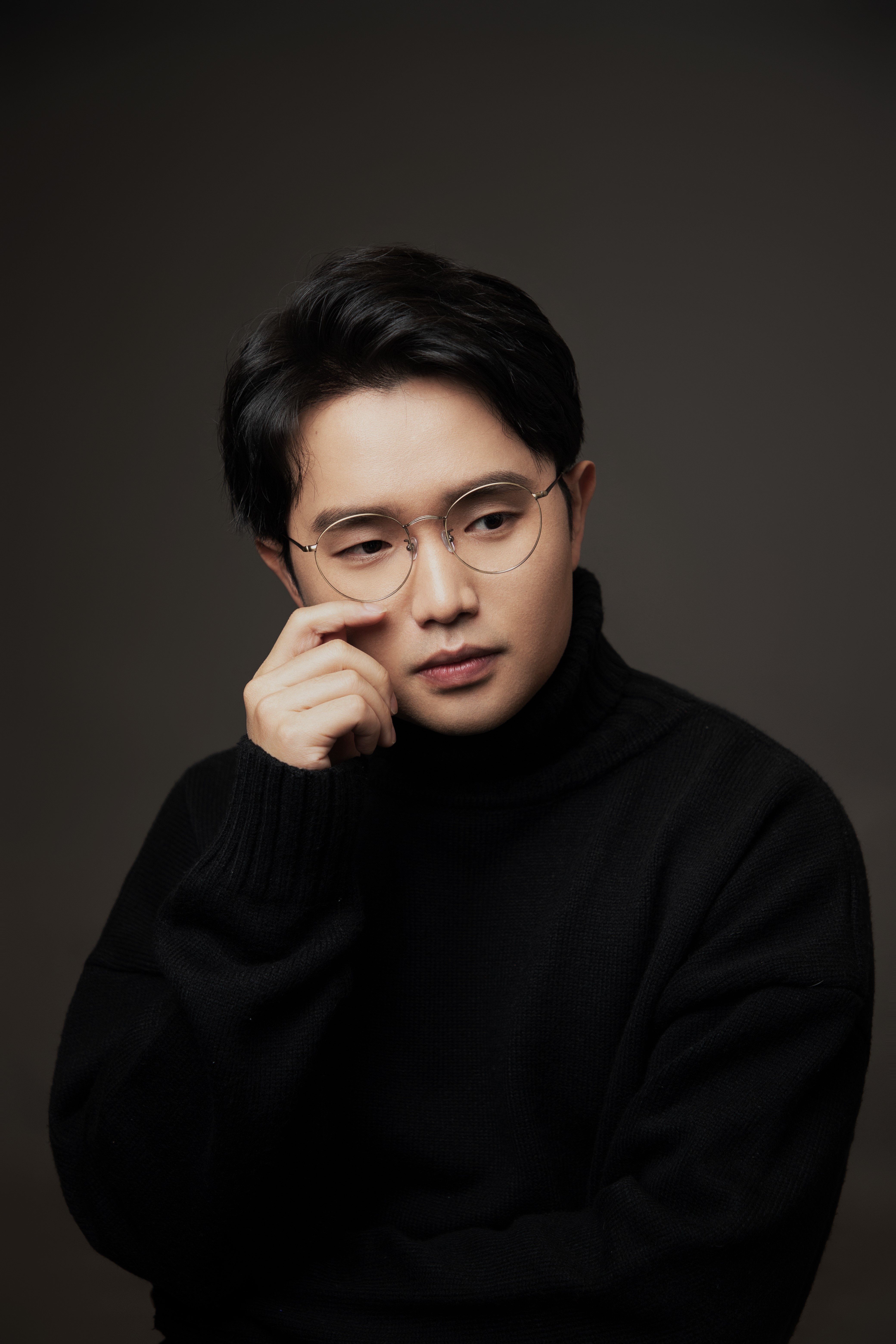 Jianfei Chu Zaha Hadid Architects (ZHACODE),DesignerJianfei is part of Zaha Hadid Architects Computation and Design Group (ZHACODE); His multifaceted research focuses on parametricism-based computational design methodologies, AI-augmented design processes, development of customizable modular systems for architectural configurators, Metaverse scenario design with an emphasis on user experience, real-time architectural visualization utilizing game engine technology, and digital fabrication with structurally performed architectural geometry. Jianfei graduated from Architectural Association Design Research Lab with distinction in 2019, Since joining ZHA, he has applied his innovative typologies across a diverse array of physical and virtual projects. Ranging from Cultural & art to Transportation (programme-wise), 60000-seat international stadium to luxury Villa for a family (scale-wise), 7 km² city plan to 0.05 m thickness 3D concrete printing bridge (resolution-wise). He also teaches workshops and skill modules at Bartlett UCL and Design Research Lab (AADRL). He has presented at international seminars and professional such as Digital Future, the World Architecture Festival (WAF) and the American Society of Architectural Illustrators (ASAI).
Jianfei Chu Zaha Hadid Architects (ZHACODE),DesignerJianfei is part of Zaha Hadid Architects Computation and Design Group (ZHACODE); His multifaceted research focuses on parametricism-based computational design methodologies, AI-augmented design processes, development of customizable modular systems for architectural configurators, Metaverse scenario design with an emphasis on user experience, real-time architectural visualization utilizing game engine technology, and digital fabrication with structurally performed architectural geometry. Jianfei graduated from Architectural Association Design Research Lab with distinction in 2019, Since joining ZHA, he has applied his innovative typologies across a diverse array of physical and virtual projects. Ranging from Cultural & art to Transportation (programme-wise), 60000-seat international stadium to luxury Villa for a family (scale-wise), 7 km² city plan to 0.05 m thickness 3D concrete printing bridge (resolution-wise). He also teaches workshops and skill modules at Bartlett UCL and Design Research Lab (AADRL). He has presented at international seminars and professional such as Digital Future, the World Architecture Festival (WAF) and the American Society of Architectural Illustrators (ASAI). -
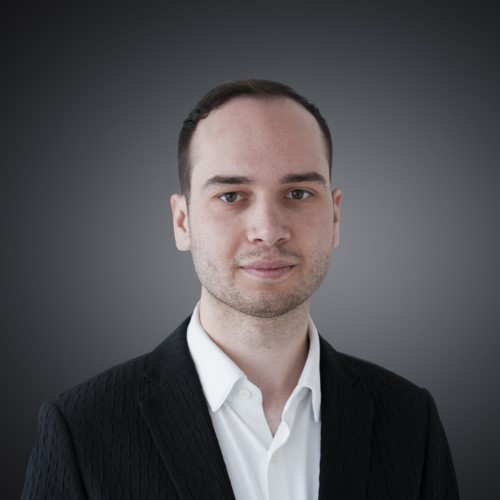 Clemens Lindner Zaha Hadid Architects,DesignerClemens is currently a Designer at Zaha Hadid Architects (ZHA) joining in 2021. He received his Bachelor of Architecture degree from the Technical University of Munich (TU Munich), Germany, in exchange with Tongji University Shanghai and is currently completing his Master of Architecture at the Chair of Architectural Informatics at TU Munich. He joined ZHA in 2021 and is currently working on the new Forest Green Rovers Eco-Stadium in England, which features a timber frame structure, a world-first innovation, as part of a broader zero-carbon campus development. Clemens' research and expertise are primarily focused on the integration of Generative Artificial Intelligence (AI) within architectural design methodologies. This involves the systematic incorporation of AI-assisted workflows into the design process, hosting and coordinating forums such as the AI Round table, and the customization of AI models specifically for architectural applications in multiple competitions and ongoing architectural projects. Furthermore, Clemens has taught as an assistant at TU Munich as well as at workshops and conferences in Germany. He has received the University Prize of the Bavarian Construction Industry Association, and the Student Award for Excellence in Architecture at Tongji University. Since 2019, Clemens has gained practical experience at a number of leading international architectural practices in Shanghai and Munich. Previously Clemens worked at David Chipperfield Architects, Shanghai as an Architectural Intern working on competitions in various scales in China.
Clemens Lindner Zaha Hadid Architects,DesignerClemens is currently a Designer at Zaha Hadid Architects (ZHA) joining in 2021. He received his Bachelor of Architecture degree from the Technical University of Munich (TU Munich), Germany, in exchange with Tongji University Shanghai and is currently completing his Master of Architecture at the Chair of Architectural Informatics at TU Munich. He joined ZHA in 2021 and is currently working on the new Forest Green Rovers Eco-Stadium in England, which features a timber frame structure, a world-first innovation, as part of a broader zero-carbon campus development. Clemens' research and expertise are primarily focused on the integration of Generative Artificial Intelligence (AI) within architectural design methodologies. This involves the systematic incorporation of AI-assisted workflows into the design process, hosting and coordinating forums such as the AI Round table, and the customization of AI models specifically for architectural applications in multiple competitions and ongoing architectural projects. Furthermore, Clemens has taught as an assistant at TU Munich as well as at workshops and conferences in Germany. He has received the University Prize of the Bavarian Construction Industry Association, and the Student Award for Excellence in Architecture at Tongji University. Since 2019, Clemens has gained practical experience at a number of leading international architectural practices in Shanghai and Munich. Previously Clemens worked at David Chipperfield Architects, Shanghai as an Architectural Intern working on competitions in various scales in China.